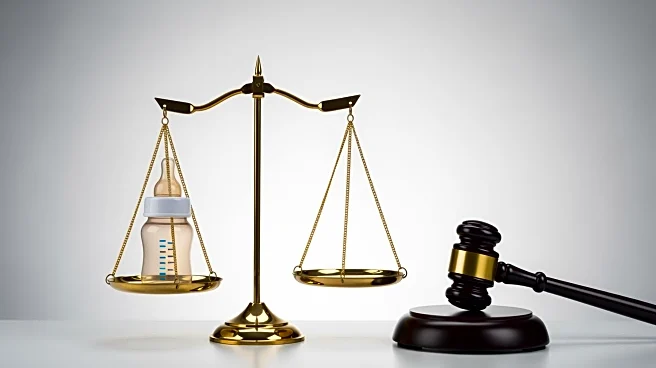What's Happening?
The US Supreme Court is deliberating on a jurisdictional issue in a baby food product liability case. The central question is whether the US Court of Appeals for the Fifth Circuit was correct in vacating a judgment due to the federal trial court's lack
of jurisdiction. The case originated in a state court in Texas, where the plaintiff chose to file the lawsuit. During the arguments, some justices, including Justice Elena Kagan, expressed openness to upholding the Fifth Circuit's decision, emphasizing the plaintiff's right to select the forum for litigation. This case highlights the ongoing debate over jurisdictional authority between state and federal courts.
Why It's Important?
The Supreme Court's decision in this case could have significant implications for jurisdictional authority in product liability cases. If the court upholds the Fifth Circuit's ruling, it may reinforce the principle that plaintiffs can choose their preferred forum, potentially leading to more cases being filed in state courts. This could affect how companies strategize their legal defenses and influence the balance of power between state and federal courts. The outcome may also impact future litigation strategies and the handling of similar jurisdictional disputes across the country.
What's Next?
The Supreme Court's decision is awaited, which will clarify the jurisdictional boundaries between state and federal courts in product liability cases. Legal experts and stakeholders are closely monitoring the case, as the ruling could set a precedent for future jurisdictional disputes. Companies involved in product liability cases may need to reassess their legal strategies depending on the outcome. Additionally, the decision could prompt legislative discussions on jurisdictional reforms to address any ambiguities highlighted by the court's ruling.
Beyond the Headlines
This case underscores the complex interplay between state and federal judicial systems in the United States. It raises questions about the autonomy of state courts and the extent to which federal courts can intervene in state-level decisions. The broader implications may include discussions on judicial efficiency and the rights of plaintiffs in choosing their litigation forums. Legal scholars may explore the ethical dimensions of jurisdictional authority and its impact on access to justice.

















